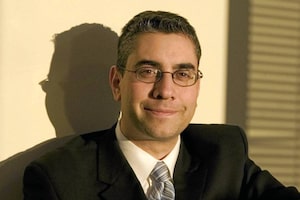Ted Rechtshaffen is president and CEO of TriDelta Financial Partners, a firm that provides independent financial planning advice. He was vice-president of business strategy at a major Canadian brokerage firm and found that the interests of the client were often not aligned with the interests of the adviser or the interests of the company.
This is part seven in a series that looks inside the financial services industry at what advisers tell their clients and - more importantly - what they don't.
When talking to clients, financial advisers often start at the end. By that I mean they try to get a reasonable sense of what their client's estate size will be.
This is done for two reasons:
1) It answers the question: "Will I outlive my money?"
2) It raises the question: "Do I want to have this much money at the end?"
The second point can raise some interesting questions: Is a large estate a good thing or a bad thing? If I don't spend this money, who else uses it? Do I want my children to inherit this much money? Do I want to give it away sooner and see the benefits?
What we do know is that if it looks as though there will be a meaningful estate, and these questions aren't thought through and acted upon in your mid-50s, 60s or 70s, then the biggest winner is the government. That's because any income on investments held outside of registered accounts is taxed every year. Over time, this "unused" money is taxed a fair amount. On top of this, if there is a sizable RIF after a couple pass away, almost half of the value is taxed. There is also a probate cost of up to 2 per cent on the size of the estate.
If the idea of the government being the biggest winner doesn't appeal to you, then there are only three other options: spend more, give more to family or give more to charity. With proper planning at least 15 years before death, often $100,000 or more can be spent on your kids, your favourite charities or yourself, instead of going to the government.
|
More from Ted Rechtshaffen |
Notice that none of these options is ideal for an investment-focused adviser. They all involve making your personal investment portfolio smaller.
But the benefits come back to another question: "What makes me happy and what are my priorities in life?" In general, helping out your children and grandchildren while you are living, giving to charities while you are around to see the benefit (sometimes by setting up insurance with a charity as a beneficiary) or spending more on yourself are often the reasons you built your wealth in the first place.
If you have a good financial adviser, they will have helped you to understand your estate value and had a discussion about things you could be doing today to help others and save tax.
If not, then it is important to understand that the only value your investment adviser is providing is managing risk and rate of return. I hope the returns are good.
Next week: Your group RSP: Why you need to demand a great plan
|
Other articles in Ted Rechtshaffen's Adviser Secrets series:
|
|
More on financial advisers:
|
 Ted Rechtshaffen
Ted Rechtshaffen